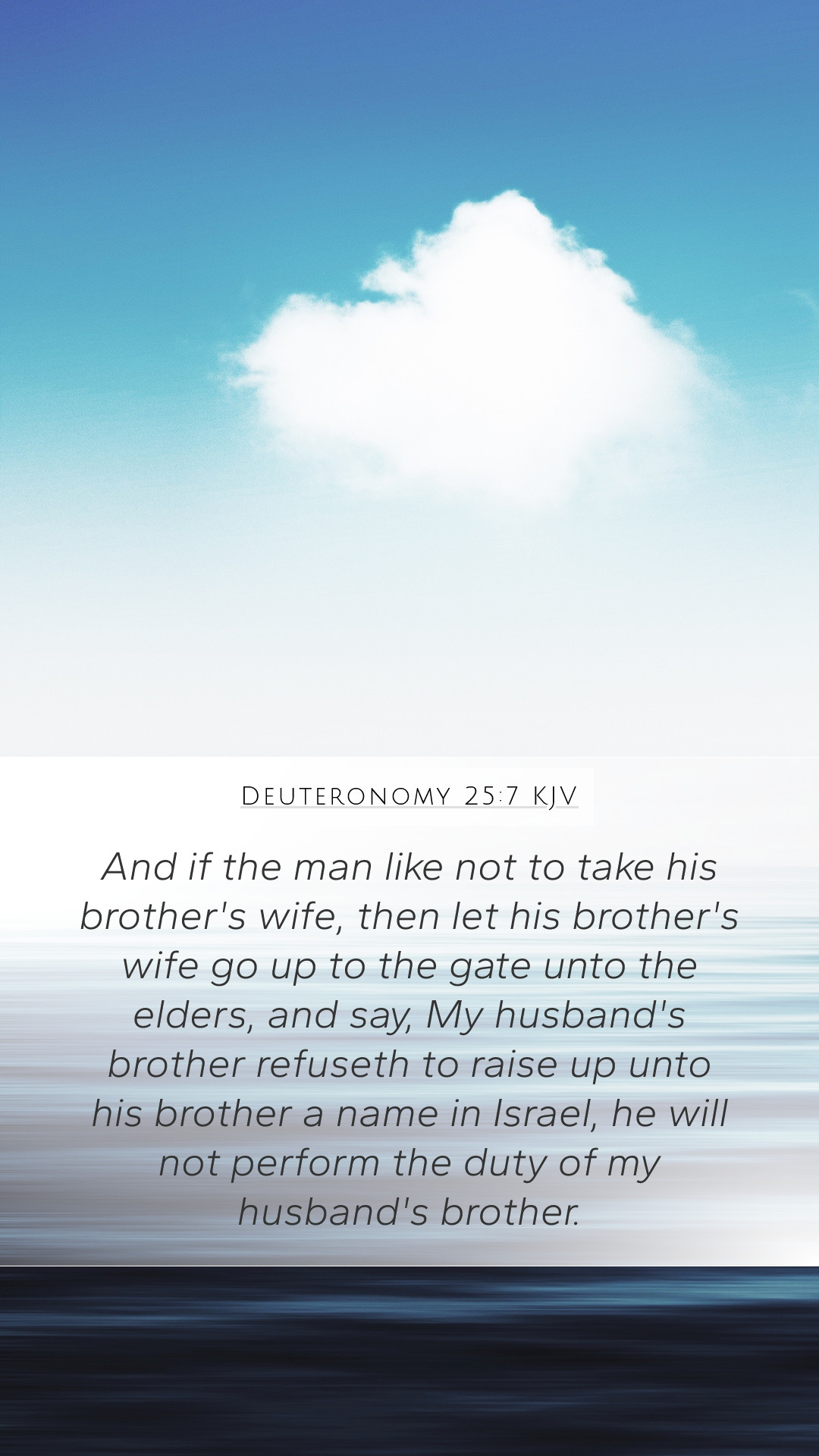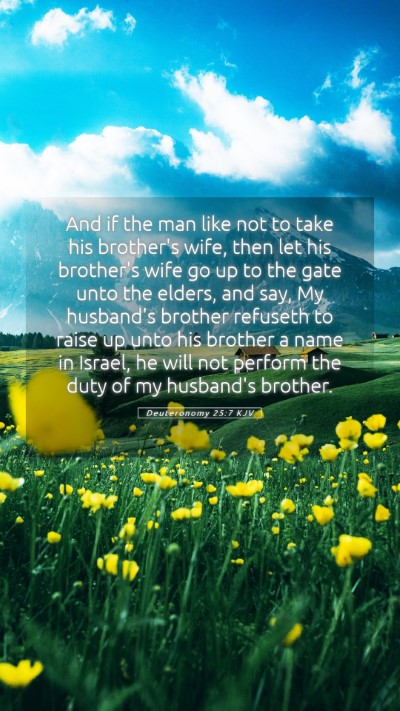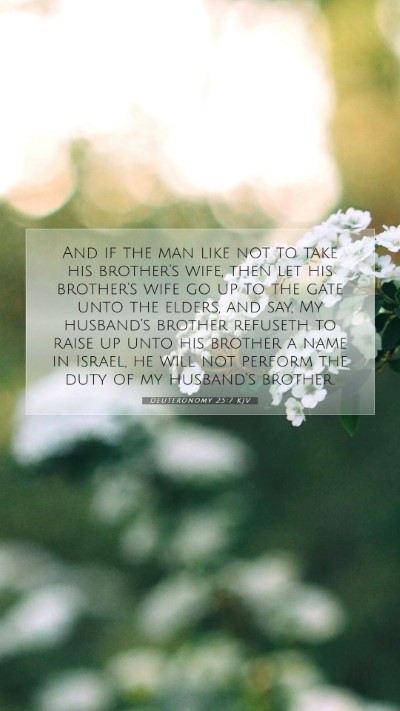Bible Verse Commentary: Deuteronomy 25:7
Verse: "But if the man does not want to take his brother’s widow, then let his brother’s widow go up to the gate to the elders and say, ‘My husband’s brother refuses to raise up a name to his brother in Israel; he will not perform the duty of my husband’s brother.’" (Deuteronomy 25:7, ESV)
Summary of Meaning
The verse captures the Levirate marriage custom, a significant aspect of ancient Israeli law intended to preserve family lineage and property. If a man died without heirs, his brother was obligated to marry the widow to produce offspring in the deceased brother's name. The refusal of this duty leads to a formal appeal by the widow.
Bible Verse Meanings and Interpretations
- Matthew Henry's Perspective:
Matthew Henry explains that this law reflects the importance of family lineage and the preservation of one's name and estate. The brother's duty is not merely a legal obligation but a significant act of familial loyalty and continuity. If he refuses, it highlights a failure in social responsibility and a disregard for family ties.
- Albert Barnes' Commentary:
Albert Barnes emphasizes that the refusal to take the widow in marriage also carries social implications. The widow, left without support, symbolizes vulnerability in society. The public acknowledgment of this refusal serves to bring communal awareness to the man's lack of obligation towards family, reinforcing the societal structures meant to protect the lineage.
- Adam Clarke's Analysis:
Adam Clarke further clarifies that this command promotes not just duty but mercy and compassion. A man's refusal to perform his duty reflects a lack of honor; thus, the widow's recourse to the elders is a call for justice and restitution. Furthermore, Clarke notes that the process is intended to be public, enforcing social accountability.
Understanding Scripture and Historical Context
This verse must be understood within its historical context, where lineage and inheritance were paramount for the sustenance of families and the Israelite nation as a whole. The Levirate marriage system aimed to ensure that the dead brother’s lineage would continue and that his family’s lands remain within the family. This framework of responsibility underscores the broader biblical themes of community support and familial duty.
Application of the Verse in Modern Life
While the specific customs may not apply today, the underlying principles of responsibility towards family and community remain relevant. Modern readers can extract lessons on the importance of support, fidelity to familial duties, and the necessity for open communication regarding responsibilities.
Additional Bible Cross References
- Genesis 38:8-11 – The story of Judah and Tamar shows the Levirate law being enacted.
- Ruth 1:11-12 – Naomi explains the concept of a kinsman-redeemer to Ruth.
- Matthew 22:24 – Jesus references the Levirate marriage law in a question about resurrection.
Conclusion
Deuteronomy 25:7 is a profound reflection on the social fabric of ancient Israel, emphasizing responsibility, continuity, and community support. By examining this passage through various commentaries, we gain a richer understanding of its application both in its original context and in contemporary society.
Exploring Bible Verse Insights
For those engaged in Bible study groups, this verse serves as an excellent topic for discussion regarding the dynamics of familial responsibilities and societal obligations. Utilizing Bible study resources and Bible study tools can enhance understanding and application of this scripture.


